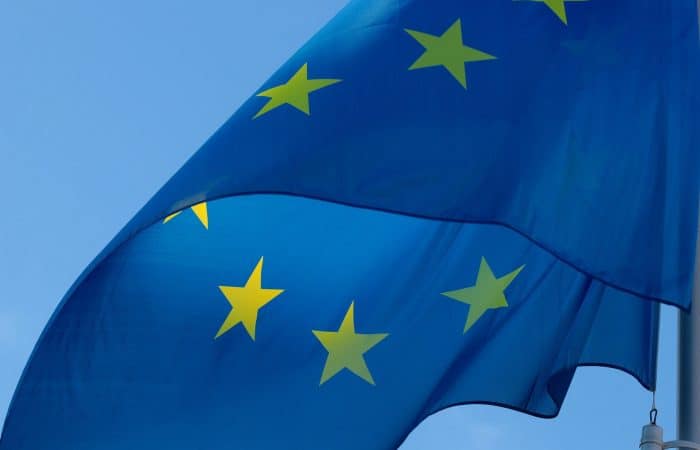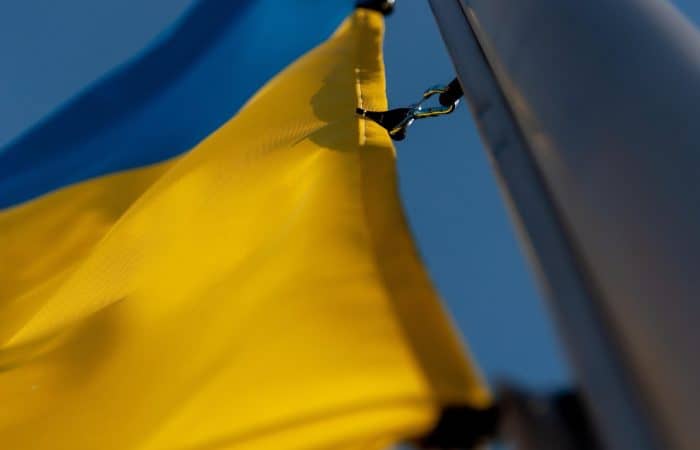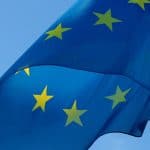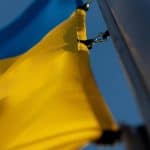This content was last updated on 21 May 2025.
Since 23 February 2022, the EU has progressively imposed sanctions against Russia in response to Russia’s violation of Ukraine’s sovereignty and territorial integrity. Below we provide an overview of the to date seventeen sanctions packages against Russia.
The current measures contain both trade restrictions and the sanctioning of individuals, and entities, as well as blacklisting third-country circumvention ships. Restrictive measures – such as an asset freeze and a prohibition on making funds available – apply to more than 2,400 individuals and entities. In addition, the listed persons are subject to a travel ban in the EU. Recently the EU has started to expand on the list of circumvention vessels that comprise Russia’s ‘Shadow Fleet’ – ships that are registered in third countries and still trading Russian oil. These ships may not access EU ports, and a broad range of services may not be provided to them.
In addition to these restrictive measures, the most important EU sanctions measures are:
- A ban on the purchase, import and transfer of crude oil and refined oil from Russia;
- Export ban on dual-use items, especially tighter export restrictions which might contribute to the technological enhancement of Russia’s defence and security sector;
- Prohibition to export goods and technology suited for use in oil refining and other EU industrial goods;
- Trade restrictions on aviation and space industry;
- Constraints to deal with transferable securities and money-market instruments;
- Restrictions on deposits, loans and credit;
- A ban on transactions with the Russian Central Bank;
- Enhanced sanctions and an investment ban in the energy-sector ;
- Ban on imports to the EU of iron, steel and aluminum products;
- Broad ban on direct and indirect dealings with 12 state owned entities (including Rosneft and Gazprom);
- Ban on imports from Russia of coal, other solid fossil fuels and LPG;
- Ban on all Russian vessels from accessing EU ports;
- Ban on imports of selected goods such as wood, cement, seafood and liquor;
- Ban on the import of gold, gold jewelry and non-industrial diamonds from Russia;
- New anti-circumvention tools allowing restrictions of exports to third countries, the obligation to contractually prohibit re-export of certain goods to Russia, closer monitoring of the sale of tankers to third countries and the imposition of more detailed attestation requirements and blacklisting companies outside of Russia as well;
- Prohibition on access to EU ports against vessels suspected of circumvention.
- Transit prohibition for certain sensitive goods.
- Ban on export of luxury goods, such as cars, including electric cars.
- Prohibition to provide enterprise and design related software to the Russian government or Russian companies.
- Expanding the list of restricted items that could contribute to the technological enhancement of Russia’s defence and security sector by adding components for the development and production of unmanned aerial vehicles (UAV); and
- Further restrictions on exports of goods which contribute in particular to the enhancement of Russian industrial capabilities, such as electrical transformers.
All the EU legal acts have been published in the EU Official Journal and are available in consolidated legislation. Below we have provided an overview of the contents of each sanctions package. This publication is provided for your convenience and does not constitute legal advice.
We recommend all businesses who are affected by sanctions and export control to familiarize themselves with these sanctions and ensure that internal compliance procedures are adequate and up-to-date. If you have any questions or would like to discuss the impact (and opportunities) under these sanctions, please feel free to reach out to us.
17th package
On 20 May 2025, the European Union adopted its 17th package of sanctions in response to Russia’s continued war of aggression against Ukraine. Although targeted in scope, this package further cracks down upon Russia’s ‘Shadow Fleet’ of oil tankers, extends the list of sanctioned entities, and further specifies the dual-use export restrictions.
- Extension of the ‘Shadow Fleet’ list. To combat circumvention of sanctions by third country ships, the EU has blacklisted an additional 189. With this addition, the number of blacklisted ships currently totals 342. These vessels are now subject to a ban on access to EU ports and locks, and EU operators are prohibited from providing a broad range of maritime-related services to them.
- Additional listings. The list of individuals and entities responsible for actions that undermine Ukraine’s sovereignty has once again been expanded, with in total 75 new listings. In line with the earlier mentioned listing of vessels, the EU has listed 31 enterprises that are involved with circumventing the sanctions or otherwise supporting the Russian military industrial complex. Alongside 18 Russian companies, these also include 13 third country-based enterprises, such as Serbia, UAE, Türkiye, Vietnam, Uzbekistan, and Hong Kong.
- Extension of dual-use export restrictions. The EU has found evidence that certain chemicals are being used to produce rocket propellants, namely natrium chlorate, potassium chlorate, aluminum powder, magnesium powder, boron powder. These chemicals are now subject to additional export restrictions. Furthermore, spare parts for machine tools — particularly those used in the production of military equipment — have been added to the list of prohibited items.
- Energy-related exemption. The temporary exemption from the oil price cap has been extended, allowing the continued shipment of crude oil originating from the Sakhalin-2 project in Russia to Japan, based on concerns over energy security.
Further measures against disinformation. The 17th package has expanded on the list of sanctioned persons and entities that are involved in destabilising activities such as information manipulation and cyber-attacks.
For detailed information on the previous 16 packages of restrictive measures against Russia, please see: EU sanctions measures against Russia.
This publication is provided for your convenience and does not constitute legal advice.
More information
If you have any questions about the content of this article, please contact our specialists on international sanctions and export controls:




